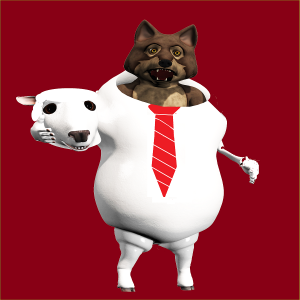The Dilemma of (Not) Hiring a Potential Archrival: an Examination of Group vs. Aggregate Screening Dynamics

But soon you’ll be interviewing candidates with your skill set, job description and ambitions, not because you can’t do your job without additional staff, the way Brinks guards have to work in pairs as a unit, but because your job needs “parallel replication”, e.g., with a “non-intersecting” second sales manager, to cover an independent, second sales territory as a “team” member in only a very dilute sense of the term, given that (s)he’ll be working pretty much autonomously.
As for why your boss is not doing the interviewing himself, imagine he’s too busy or imagines that “it takes one to interview one” is the right screening philosophy, given that his background is stronger in administration than in direct sales.
Office Aggregate, or Group?
Sociologically speaking, this means your office is about to become an “aggregate” of employees, not a “group” —the difference being that a group is bound together by more than mere identity of private, parallel personal—even competing— objectives, such as to be the #1 salesman and to make the biggest commissions in the fastest growing territory, the additional more genuine group glue being some group objective, such as the creation of a strong brand or collegial team, or maximum profits for the company, etc. Geometrically, this difference between aggregate and group is analogous to the difference between parallel and intersecting lines.
The concept of “aggregate” is equally illustrated by a crowd at a bus stop: identical goals, but probably parallel competing interests, such as to get a seat before the last one is taken by someone else in the aggregate. (But note that aggregates don’t have to be competitive; for example, otherwise unconnected people attending an uncrowded movie matinee, seated in parallel rows.)
You know that down the road advancement will depend on performance—relative, as well as absolute; so, the better the person you select to do the equivalent of your job, the stiffer your competition is going to be when the climbing and clambering for promotions, perks or even mere notice and other positive attention begins and intensifies.
Hire somebody who is too good and (s)he, as the golden child, may be tagged to eventually interview, if (s)he doesn’t become, your archrival, if not total replacement, (This is a credible scenario, if the boss wants the best to interview and recommend the best.) Your challenge is to prevent or escape this damned-if-you-do-or-don’t dilemma.
So, being tasked with the upcoming interviewing and recommending, you find yourself in a dilemma: Hire the best, you may end up with worst—for your career; don’t hire the best, the company or your credibility/reputation may suffer—which, again, translates into career stall or setback. This is especially likely if your boss suspects or gets wind of your deliberate exclusion of the best candidate(s).
The Unwisdom of the Kamikaze Bee in an Aggregate Hive
Taking the heroic or adventurous “may the best (wo)man win” stance is feasible if there’s warranted hope (s)he’s going to be the (wo)man in the mirror, namely, you, or at least the expectation that the contest will shape up to be fair—with fair or at worst even odds of your winning. Otherwise, if you end up losing to the best (wo)man, who is not only the best, but a whole lot better than you, the cheery challenge, “may the best (wo)man win”, degenerates into a gloomy and accurate prediction: “It won’t be me.”
Casting your dilemma in the foregoing sociological terms, it boils down to whether you will take on the interviewing assignment as a member of a growing aggregate (of probably, or at least potentially, competing interests) or on behalf of what could still be shaped into a highly collaborative, cooperative, collegial and even maybe altruistic group of mutually supportive members (like the quintessential multi-generation “family” business).
If you take the latter group tack, you will have a clear rationale for prioritizing and recommending the very best—even if the very much better than you. Of course, such group-mindedness carries the obvious risk that you will hamper or even eliminate yourself in the long run, like a kamikaze honeybee defending the hive that will survive it.
One seriously complicating and worrisome consideration is the possibility that the bonded group exists only in your imagination—that, in fact, you are the only worker bee with the hive’s interests at heart and that you may end up altruistically preserving or advancing an aggregate of selfish rivals. So, before climbing on to your white-knight’s steed or up your Cross, complete a reality check to confirm that you are barking or putting up the right ladder for the next hire (or whether you should be putting up a road block or detour sign instead).
To frame and address the dilemma and its resolution even more simply, your choice is between behaving likea part of a bigger whole or as an individual apart from it and its other members, while factoring in your understanding of whether that whole is an aggregate of competing or non-cooperating private interests or a group of mutually supportive and dedicated team players working in common cause.
If you conclude that the company culture is only an aggregate of competing interests, at least your conscience should be clear in not clearing a path for a potential rival; mind you, not completely clear, since the outsider just might be a starry-eyed group idealist, rather than one of the wolves.
But then, perhaps you’ll be doing him or her a favor by blocking the path. The converse argument can also be framed: If you conclude that the company is actually a team and therefore a group, your conscience will be clear in hiring the best.
Unless, of course, the talented best turns out to be a competitive beast—specifically, a wolf riding in high, astride a Trojan-horse saddle…
… in a sheep suit.

